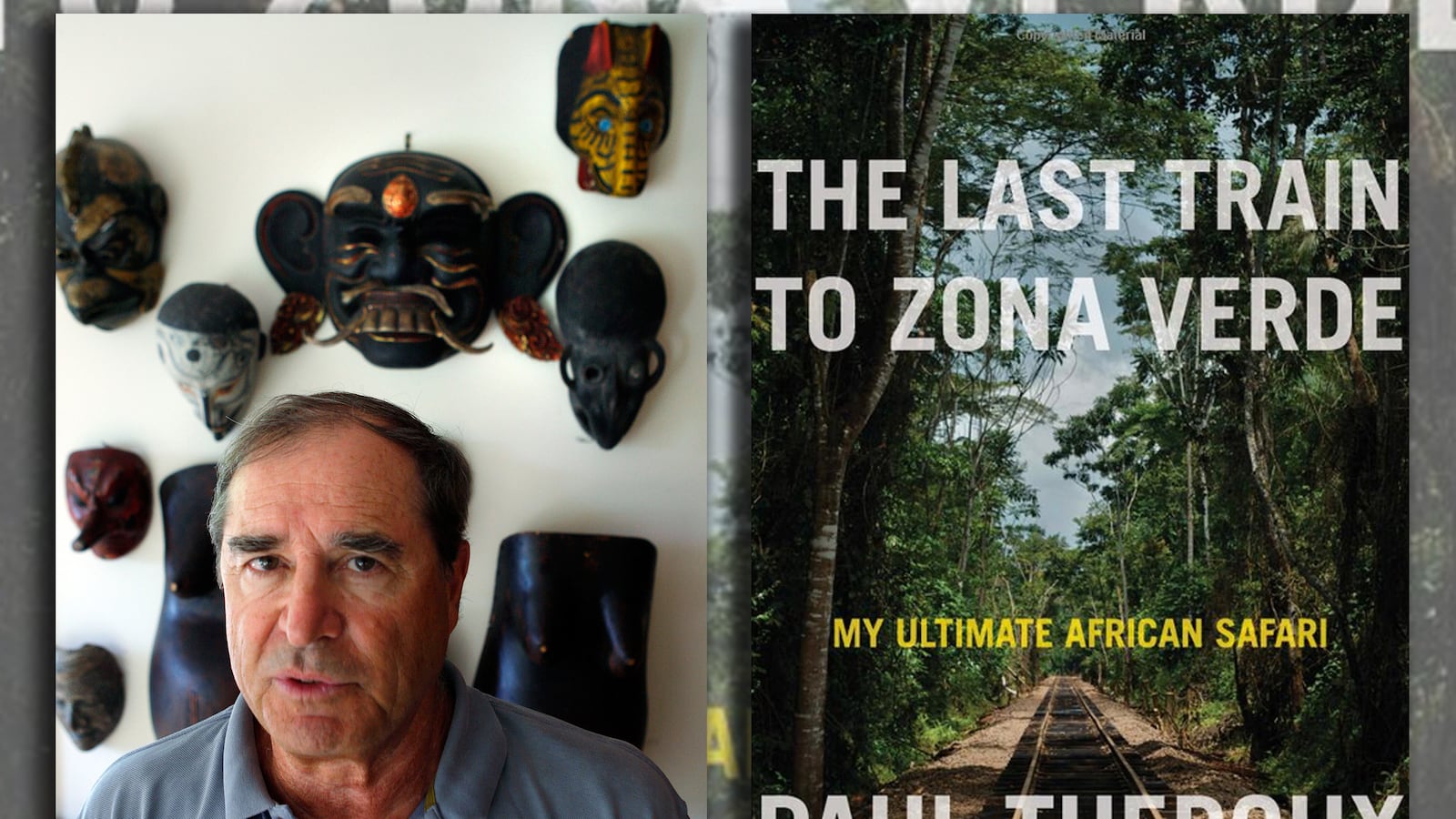Some travel books are less about travel—that is a specific itinerary and perambulation—than about an intense experience of a particular place. I think of this as both an inner and an outer journey; what is illuminated is the landscape and the people—the place rather than the traveler or the trip. In most of these cases the writers are in residence.
By Henry David Thoreau

In 1846, in Maine, only a matter of days from his home in Concord, Massachusetts, Thoreau found the wild place he was looking for. In the chapter “Ktaadn” he defines the essence of wilderness. “It is difficult to conceive of a region uninhabited by man,” he begins modestly. Then comes his hammer stroke: “Nature was here something savage and awful, though beautiful. I looked with awe at the ground I trod on, to see what the Powers had made there, the form and fashion and material of their work. This was that Earth of which we have heard, made out of Chaos and Old Night.”
The book was published posthumously and based on three pieces Thoreau had written on three fairly short trips to the hinterland of Maine. Thoreau made his last trip in 1857. He was 40 then, and you can see by his prose style that he is a different sort of traveler: humbler, affronted by the changes he sees in the 11 years since his first visit, no longer a quoter of Milton, or a praiser of lumberjacks, or a hyperbolic observer of the mystical Indian. He is now a denouncer of the logging industry and a clearsighted diarist.
By V.S. Pritchett

As a traveler in Spain who hiked a large portion of it and wrote about it in his first book, Marching Spain (1928); as a journalist in the 1920s; and as a passionate reader of Spanish writing, V.S. Pritchett was well equipped to sum up this sunny, old-fashioned, and enigmatic country and its people. He was unhappy about his youthful book, and so he wrote The Spanish Temper when he was middle-aged. It is to me the ultimate book about Spain—not a big book, but a wise, enlightened one, epigrammatic and perceptive. A short-story writer (his “The Evils of Spain” could be read along with this book), Pritchett was a master of compression.
By Moritz Thomsen

“It has been forty-five years since I took a trip whose object was pleasure,” Moritz Thomsen writes before leaving his farm in the Ecuadorian coastal province of Esmeraldas (which he wrote about in The Farm on the River of Emeralds). He was an older Peace Corps volunteer—50 when he joined—and a rare one: he never went home. He decided to travel down the Amazon, “because there is an emptiness in my life that needs to be filled with something fresh and moderately intense.”
And he makes rules for himself in the travel: “Dollar meals if I can find them; five dollar hotels, if they still exist. No guided tours, no visits to historical monuments or old churches. No taxis, no mixed drinks in fancy bars. No hanging around places where English might be spoken.” He takes his time, floating from river to river, stopping at the Amazon ports of Manaus and Belém and finally reaching Bahia on the coast. After all the bad food and discomfort and illness, and his witnessing the distress and poverty and fallen world which is Amazonia, he concludes, “There are no solutions anymore; the continent will never recover.”
By Jonathan Raban

“What I felt all the way was this was like a scale model of immigrants to America,” Raban has said elsewhere describing this book. “It was the story of America written in one particular landscape.” In the beginning of the book he describes himself as an emigrant “trying to find my own place in the landscape and history of the West.” He chose an unlikely and pretty much unwritten-about place, the dry, flat expanses of eastern Montana. This is a book about a part of America that no American could have written: we don’t have Raban’s objectivity, his passion, or his sense of alienation. He is also widely read and intensely curious—curious in the way of a foreigner in America.Travel, history, biography, and autobiography, this highly original portrait of prairie America, published in 1996, is also about the people who traveled there and who learned to adapt to the rigors of the weather, the stubborn soil, the great oceanlike emptiness that inspires Raban to view the landscape as an inland sea, in which the emigrants are like solitary voyagers. Intensely observant, curious to the point of nosiness, Raban gets to know them, examines their family histories, their dreams, the images that have been painted of the land, the photographs, the guidebooks, and he describes the journey itself—the emigrant train, filled with distinct individuals, whom we come to know, confronted by a new climate.
By Carlo Levi

This is one of those important books that compelled me, after I’d read it, to go to the place and see it for myself. I visited Aliano (Levi calls it Gagliano) in Lucania, in southern Italy, when I was on my around-the-shore-of-the-Mediterranean trip. It was a detour from the coast, but a memorable one. I wrote about it in The Pillars of Hercules. “He wasn’t Italian,” an old man told me in the town, speaking in Italian. “He was a foreigner—a Russian.” I questioned this. “’Breo,” the man said. At first I didn’t understand, and then I guessed at the word: Ebreo, a Jew. So everything Levi experienced in 1935, and wrote about in 1943, was still true in 1995: these people were remote, mentally and geographically, off the map in every sense.
The book describes the oddity of this educated Florentine among the peasants of a remote village in the deep south of Italy—a forgotten people, hardly Christian. Christ didn't get to Aliano, they explain to him; Christ stopped miles away, at Eboli. “We’re not Christians,” they say. They are superstitious, violent, passionate, mercurial, and secretive, with a greater belief in dragons than in any saint.






